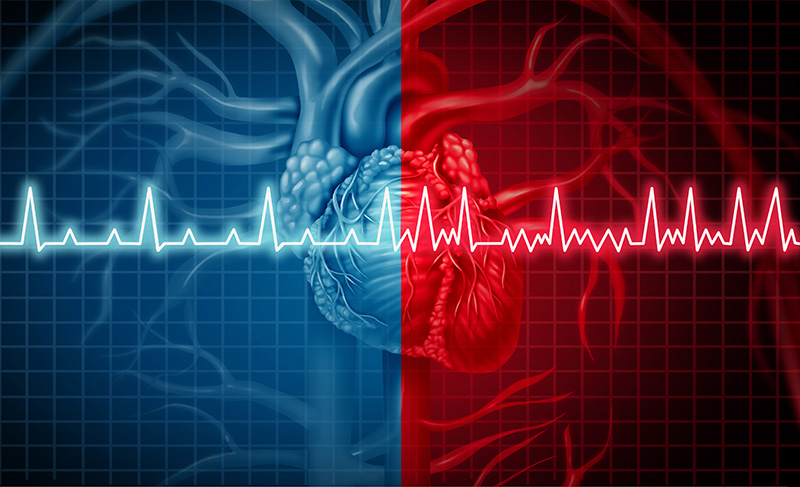Atrial Fibrillation [What you need to know]

Atrial Fibrillation is an irregular heart rhythm that can cause blood clots, stroke, and other heart complications. There are approximately 2.7 million Americans living with atrial fibrillation.
Some patients have no symptoms and the irregular rhythm is detected upon an exam by their physician. Some of the symptoms are general fatigue, rapid and irregular heartbeat, fluttering in the chest, dizziness, shortness of breath, weakness, confusion, fatigue when exercising, sweating, and chest pain.
Atrial Fibrillation is treatable. One method of treatment is medications to control the rhythm and heart rate. Many patients are required to take blood thinners in order to prevent blood clot formation. Another option is electrical cardioversion, which can restore the regular rhythm for some patients.
If medications and cardioversion are not successful or preferred, an ablation procedure can be performed. This procedure identifies the origin of the electrical signals causing the irregular heartbeat. A catheter is used to deliver radiofrequency or cryotherapy to scar the problematic area, which restores the heart to regular rhythm.
To reduce your risk of atrial fibrillation eat a healthy diet, avoid excessive amounts of alcohol and caffeine, do not smoke, control your cholesterol, manage your blood pressure, and maintain a healthy weight.
If you have the following conditions, they can contribute to the onset of atrial fibrillation:
- Sleep Apnea
- Diabetes
- Thyroid Disease
- High Blood Pressure
- Chronic Lung Conditions
- Family History
- Obesity